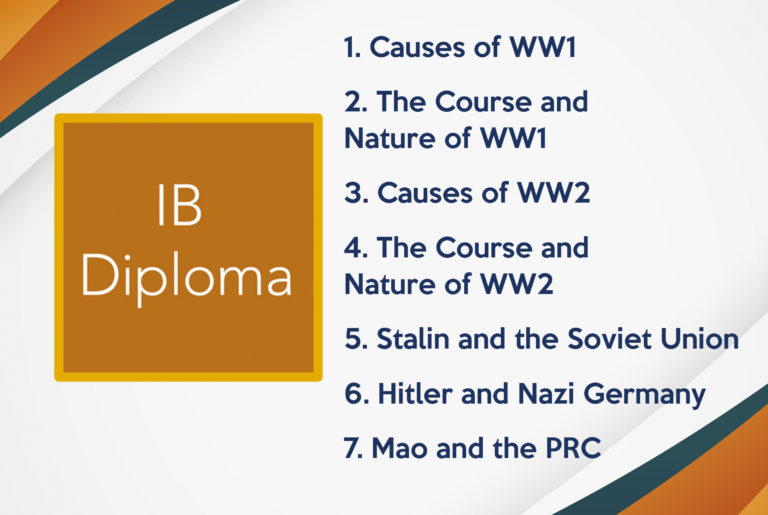The Philosophical Base of Nazism
There is a well-worn path in tracing the roots of Nazism and Hitler did form a philosophical base for Nazism from a number of writers, even if he was sometimes told about their works or read about them rather than studying them directly. You, I am sure, will have no trouble seeing Nazi ideals in their words. There were, though, his life experiences too: living in Vienna as the Austro-Hungarian Empire was in decline, his experience as a soldier in the Great War, living in Munich in the aftermath of defeat. These are examined in separate pieces that consider ‘Hitler, the Great German Nationalist’ and Hitler’s anti-Semitism (though you can never fully get away from either). But in this piece, I will focus on the scattered writings that led others, as well as Hitler, to the same conclusions about the reasons for the mess Germany was in; and what Germany needed to get out of that:
A belief in the Aryan as the master race
A contempt for Slavs and a hatred of Jews
The need for a powerful authoritarian state
A contempt for democracy
A hatred of socialism and communism
The glorification of war and conquest
I begin with Johann Fichte, who began his ‘Addresses to the German Nation’ at the University of Berlin in 1807 where he held the chair of philosophy, in the wake of Prussia’s defeat by Napoleon at the Battle of Jena. Despite that defeat, he argued that it was the French (as well as Latins and Jews) who were inferior to the Germans, and that Germany would rise again, led by a small elite. So, we have the German as racially superior, not just to the Jew, but to the French, who would remain a great adversary, and to the Italians whom Hitler had little regard for, certainly as a military force, even though they would be allied to them. There is also the fact that Germany would rise from defeat (as it needed to again after WW1) led by an elite. The Nazis would come to see themselves as an elite replacing the traditional elite who had shown themselves unworthy of ruling/governing Germany.
When Fichte died, his place was taken at the university by Georg Hegel whose dialectics inspired Marx and Lenin, but who also lifted the state to being of supreme importance in human life. The state, wrote Hegel, ‘has the supreme right against the individual, whose supreme duty is to be a member of the State.’ He also saw war as a necessity for a state’s health: ‘the ethical health of peoples corrupted by a long peace …’ What is more, he argued that neither the state, nor the people who lead it, should be held back by private morals such as modesty, humility or forbearance. The state ‘must trample down many an innocent flower – crush to pieces many an object in its path.’ Like Fichte, Hegel felt Germany’s day would come.
And like Fichte, Hegel also wrote about leadership, but individuals rather than elites. He wrote about the need for ‘world-historical individuals’. These are special people: ‘They may be called Heroes, inasmuch as they have derived their purposes and their vocation, not from the calm regular course of things, sanctioned by the existing order; but from a concealed fount, from that inner Spirit, still hidden beneath the surface, which impinges on the outer world as on a shell and bursts it into pieces…. World-historical men – the Heroes of an epoch – must therefore be recognized as its clear-sighted ones; their deeds, their words are the best of their time.’ He cites as examples, Alexander, Caesar and Napoleon. Hitler, who increasingly saw himself as “given” to Germany by Providence, was therefore of the opinion that his name would be added.
Heinrich von Treitschke, another professor at the University of Berlin (between 1874 until 1896), but a historian, took Hegel’s views a lot further. His lectures were attended by officers of the General Staff of the German Army as well as officials of the Junker bureaucracy. His influence at the time was thus enormous, as it was with the Nazis. With regard to the relationship between people and the state, he said: ‘It does not matter what you think, so long as you obey.’ Exactly what the Nazi regime expected of the German people. And as for war, ‘War is not only a practical necessity, it is also a theoretical necessity, an exigency of logic. The concept of the State implies the concept of war, for the essence of the State is war.’ And what is more, ‘A people which become attached to the chimerical hope of perpetual peace finishes irremediably by decaying in its proud isolation.’ By the time he get to meet Chamberlain at Munich, Hitler was itching for war, itching to prove (to Germans as much as others) that Germany was once more a power to be reckoned with, and indeed he was bitterly disappointed at being denied war by Chamberlain’s weak submission to his demands.
Friedrich Nietzsche, by contrast, though a German himself, actually held Germans in pretty low regard. They have ‘no conception how vile they are’, he wrote. He thought that as a consequence of unification as a result of war, there existed a vulgar worship of power. He also strongly opposed anti-Semitism. None of this would be accepted by Hitler and the Nazis. Yet Hitler held him in high esteem, as did the Nazi movement too, and never tired of quoting him (mostly misinterpreting his message in the process), helped by his colourful, emotive language. Why? Because he felt state power was more important than democracy, parliaments or the rule of law – ‘Society is not entitled to exist for its own sake but only as a substructure and scaffolding, by means of which a select race of beings may elevate themselves to their higher duties.’ And he believed that the power of the individual was more important than the state – ‘When a man is capable of commanding, when he is by nature a “Master”, when he is violent in act and gesture, of what importance are treaties to him?’ He denounced Christianity as ‘the one great curse, the one enormous and innermost perversion … I call it the one immortal blemish of mankind … no more than the typical teaching of the Socialists.’ Whereas he praised war – ‘War and courage have done more great things than charity.’ He proclaimed the coming of the master race – ‘A daring and ruler race is building itself up’, and it ‘will become the lords of the earth’ – and of the superman – ‘the magnificent blond brute, avidly rampant for spoil and victory.’ Yet his most famous concepts – the ‘will to power’ and the ‘superman’ belonged, for him, only in the world of thought and ideas, not to politics and action. Yet his words did appear to be elitist and they did appear to be racist (his sister actually led the way in vulgarizing and popularizing his ideas), and they were put to (mis)use by Right-wing nationalists including, of course, the Nazis.
Those who read Nietzche, or commentaries on his work, were most likely also aware of the work of Oswald Spengler. His book, The Decline of the West, published in two volumes, the first in 1918, the second in 1923, appeared to support the fear of those who believed that Germany had no sooner been made than it was in decline, and would continue to be so unless that decline was arrested. Spengler said that history went through phases similar to the seasons of the year: spring, summer, autumn and winter, and that Germany was experiencing a winter in which established state institutions were collapsing as the masses took over control. But this didn’t mean that all was lost for spring follows winter and Spengler anticipated an ‘awakening’, the rebirth of an ‘agricultural-intuitive’ state. There doesn’t seem to be a gigantic leap of faith to take us to the position held by German nationalists in Weimar, nor to the Nazi’s belief in ‘blood and soil’.
Another contemporary of Weimar, Arthur Moeller van den Bruck, saw liberalism, more even than Weimar itself, as the problem. His book, Das Dritte Reich (‘The Third Reich’), published in 1923, unintentionally provided the Nazi state with its historic name. He associated the First Reich with Charlemagne and the Second Reich with Bismarck. Both were inspirational and provided strong leadership, the opposite of Party government and the divisory experience of the Weimar Republic. The Third Reich would be the ‘final Reich’, but it would require a nationalist revolution. The book was a passionate attack on liberalism and social democracy in Germany and too, an attack on the Jewish population in Germany. He felt that liberalism was synonymous with reason which he felt was inferior to understanding. And he blamed liberalism for creating society which had replaced community. He saw the Jews as uprooted people without a homeland. Many Nazi’s, including Hitler, did not embrace Moeller but Joseph Geobbels did and Geobbels made him a hero in Right-wing circles.
But of all Germans, it was Richard Wagner that symbolized everything, or just about everything, Nazism stood for. Hitler himself would say, ‘Whoever wants to understand National Socialist Germany must know Wagner’ Though he was as passionate a German nationalist and as passionate an anti-Semite as Hitler, and he had no time for democracy and parliaments, and little regard for the bourgeoisies who he thought were nothing more than mediocre, it was nevertheless his music that spoke to Hitler. He loved it. Wagner is famous for his operas: Tristan und Isolde, Hitler’s favourite, or Nibelungen Ring (actually four operas), recognized as his masterpiece. Wagner took mythical German tales portraying a sense of destiny, tribal codes, pagan heroes who held no fear fighting pagan gods, worlds overwhelmed by violence, the nobility of death. Wagner came closest to encapsulating Hitler’s sense of Weltanschauung, his view on how life should be lived.1
Hitler didn’t make a systematic study of any of these works. He was always more a man of action and as I say in my introduction, he was also very much influenced by his own experiences. But he did read and he did discuss these ideas with like-minded colleagues, and that they so closely tie to his own thinking and to Nazi policies and ways of operating, are plain to see.
i Quotes from William L. Shirer, The Rise and Fall of the Third Reich, pp. 98-101 + 110-11




